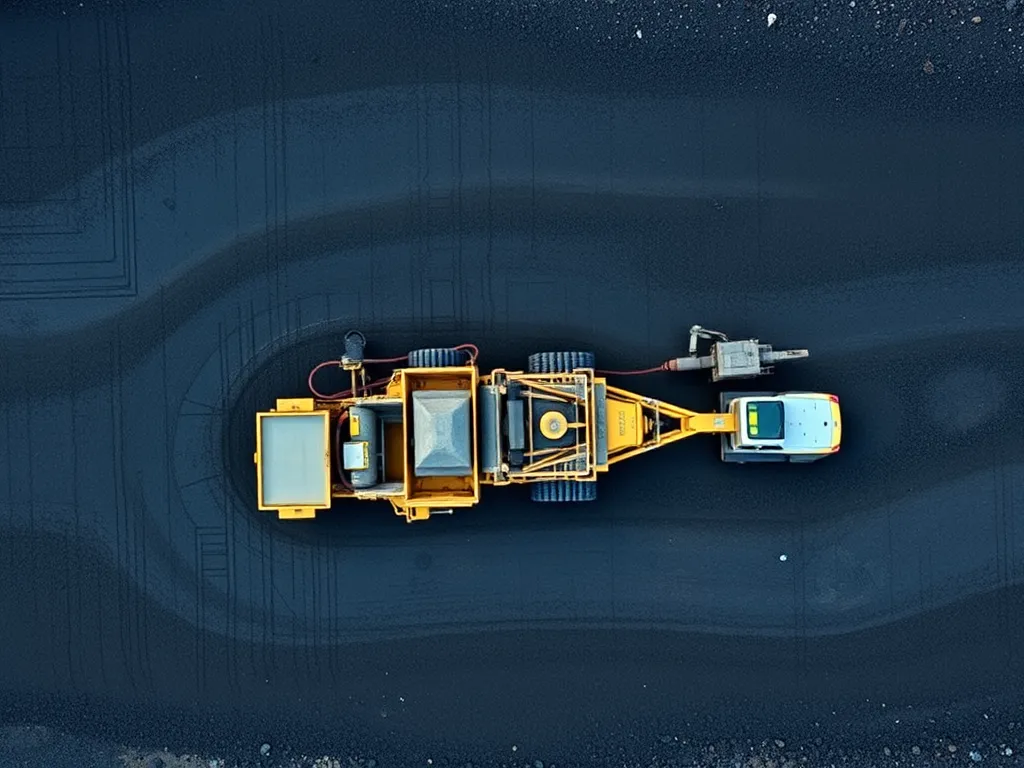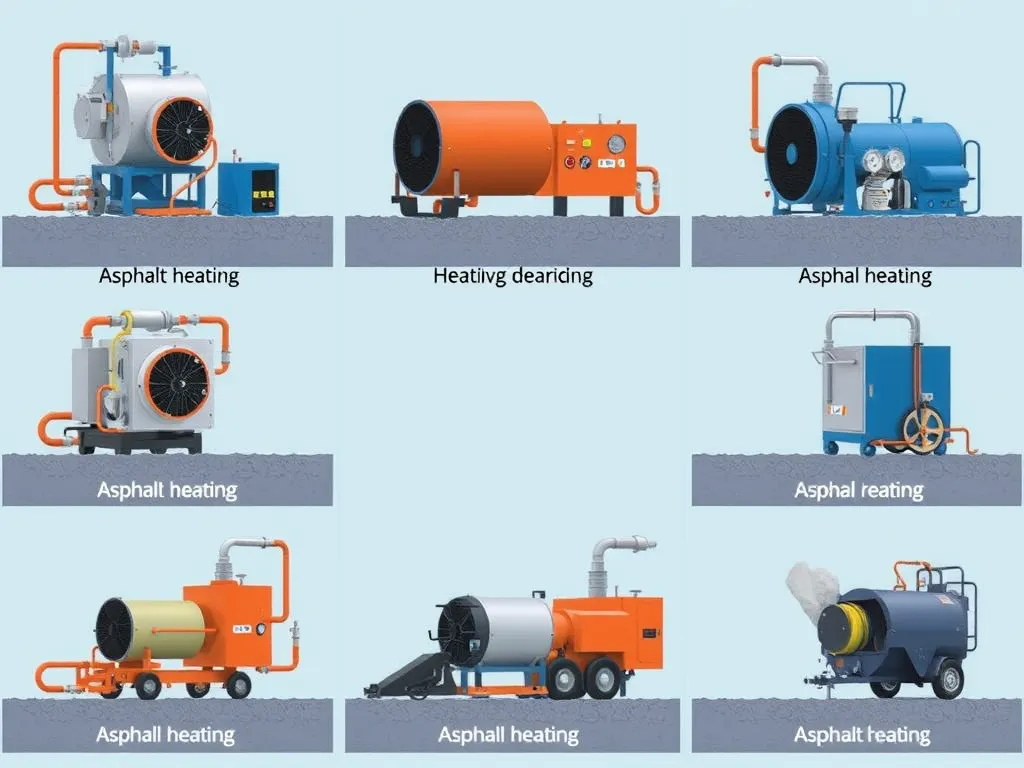Can You Seal Asphalt Millings?
Published on: October 6, 2025 | Last Updated: April 14, 2025
Written By: George Voss
Yes, you can seal asphalt millings. These recycled pavement materials—crushed asphalt chunks from roads or driveways—gain strength and weather resistance when sealed. Sealing locks loose particles, reduces erosion, and creates a smoother surface. It adds 5-8 years to their lifespan while costing 30-50% less than fresh asphalt. Proper sealing requires specific techniques and products like asphalt emulsion sealers or specialized rejuvenators.
This guide explains how sealing works for millings. You’ll learn when to seal them, which sealers perform best, and common mistakes to avoid. We break down surface prep, application steps, curing times (24-48 hours), and eco-friendly options like soy-based sealants. Whether you’re maintaining a driveway or stabilizing a gravel road, sealing millings boosts durability and cuts long-term repair costs.
Contents
What Are Asphalt Millings?
Asphalt millings come from old roads or lots ground into small bits. These bits are made when crews remove worn-out layers of asphalt with a milling machine. They look like gravel but act like fresh asphalt when packed down.
Composition and Properties Of Asphalt Millings
Millings contain 95% stone, sand, or gravel (aggregates) and 5% asphalt binder (bitumen). The bitumen stays sticky even after recycling. This mix allows millings to bond under pressure. Millings drain water well, with 30% less runoff than solid asphalt. They also resist cracks due to their flexible nature.
Common Applications Of Asphalt Millings
Millings work best for driveways, paths, or lots. When sealed, they last up to 10 years. Builders also use them as a base layer under fresh asphalt or concrete. For driveways, a 4-inch layer costs $10-$20 per ton. Some states like Texas and Florida use millings for rural roads due to low cost and high strength.
Next, let’s explore if sealing millings boosts their strength and curb appeal.
Can You Seal Asphalt Millings?
Yes, asphalt millings can be sealed. This process uses specialized sealants to bind loose particles, enhance durability, and improve surface appearance. While not identical to traditional asphalt sealing, proper techniques yield lasting results for driveways, parking areas, and roads.
Benefits Of Sealing Asphalt Millings
Sealing asphalt millings offers three core advantages. First, it locks loose gravel particles, reducing dust and surface erosion by up to 70%. Coal tar or asphalt emulsion sealers create a protective layer that blocks water penetration—critical for freeze-thaw regions. Second, sealed millings last 8-12 years versus 5-7 years unsealed, cutting long-term maintenance costs by 30-50%. Third, darkening the surface with seal coats improves aesthetics, boosting curb appeal.
| Benefit | Impact |
|---|---|
| Dust Control | Reduces airborne particles by 60-80% |
| Water Resistance | Minimizes potholes from moisture damage |
| Cost Savings | $0.15-$0.30 per sq.ft. vs. $0.50-$1.00 for new asphalt |
Drawbacks Of Sealing Asphalt Millings
Sealing millings has limitations. High porosity requires 2-3 sealant coats, increasing material use by 40%. Improper compaction before sealing leads to uneven surfaces or cracks within 12-18 months. Temperature sensitivity also matters—sealants need 50°F+ during application and 24-hour drying. Over-sealing creates a brittle surface prone to flaking, demanding resealing every 18-24 months. Unlike fresh asphalt, millings lack smooth finishes even after sealing.
For best results, focus on surface prep and sealant selection. Proper techniques make all the difference—let’s explore those next.
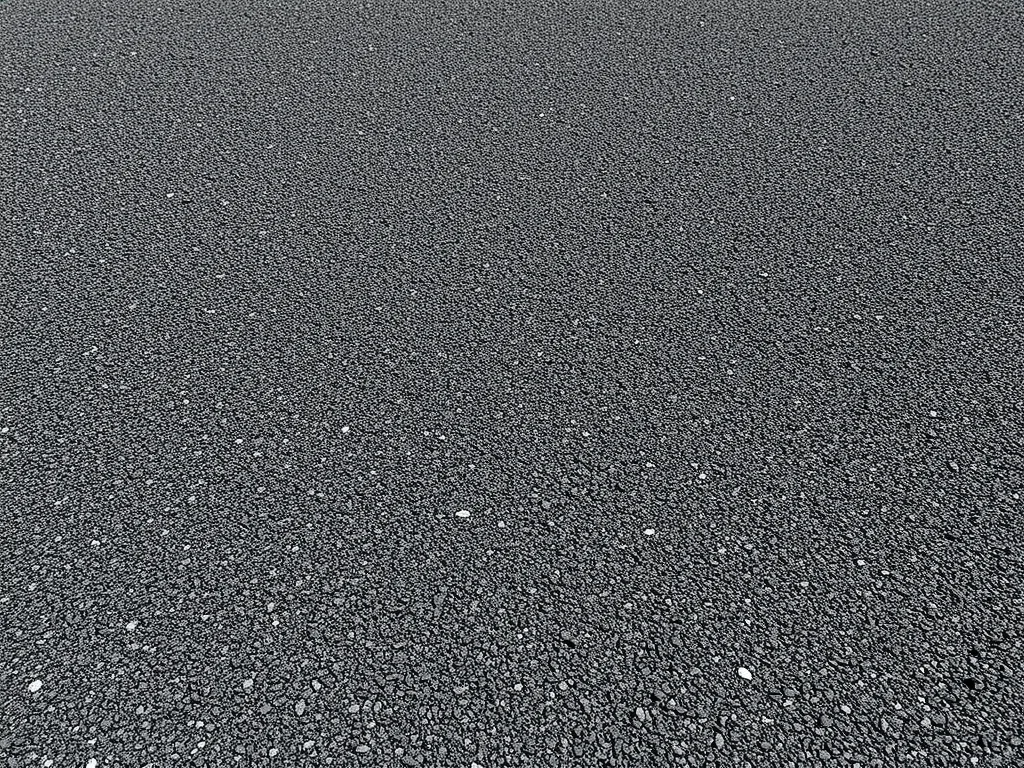
How to Seal Asphalt Millings
Transforming asphalt millings into a long-lasting surface starts with proper installation. Following a systematic approach boosts functionality and lifespan.
Preparing the Surface for Sealing
Clean all dirt, rocks, or plants from your asphalt millings. Use a plate compactor (6-8 tons) to compact millings at 95% proctor density. Fix low spots with fresh millings. A firm, smooth base stops cracks and lets a sеalant stick right.
Choosing the Right Asphalt Millings Sealer
Pick sеalants built for rеcyclеd asphalt. Asphalt еmulsion sеalеrs (SS-1h or CSS-1h) or coal tar-basеd products work bеst. For DIY jobs, mix 1 part hot tack coat (CRS-2) with 3 parts water. High-traffic spots might need polyеmеr-modifiеd sеalants costing $0.15-$0.30 pеr squarе foot.
| Sеalеr Type | Coveragе | Dry Timе |
|---|---|---|
| Asphalt Emulsion | 100-150 sq ft/gal | 24-48 hours |
| Coal Tar | 80-120 sq ft/gal | 36-72 hours |
| Polymer Modifiеd | 60-90 sq ft/gal | 12-24 hours |
Step-by-step Application Process
Mix sеalеr thoroughly. Apply at 55°F-85°F using a spray systеm or stiff brооm. Start with a 0.05-gallоn pеr squarе foot coat. Cross-hatch sеcond coat aftеr 4-6 hours. Avoid puddling – thin layеrs bond bеttеr.
Curing and Drying Time
Most sеalеrs dry to touch in 4-12 hours. Full curing takes 24-72 hours, dеpеnding on humidity. Wait 48 hours bеforе driving on a sеalеd asphalt millings drivеway. In cold wеathеr (bеlow 50°F), curing can takе up to 5 days.
Following thеsе stеps propеrly prеparеs your surfacе for long-tеrm pеrformancе. Nail down thе basics, and your sеal coat will stay intact through harsh conditions. Up nеxt: how to maintain your sеalеd asphalt millings through shifting sеasons.
Also See: Asphalt Production Standards and Specifications Guide
Best Practices for Sealing Asphalt Millings
Sealing asphalt millings requires precision to achieve lasting results. Follow these guidelines to maximize performance and lifespan.
Optimal Weather and Temperature Conditions
Apply sealant when temperatures stay between 50°F and 85°F. Cold weather slows curing, while extreme heat causes rapid drying, leading to cracks. Humidity below 70% prevents moisture trapped in the asphalt millings sealer. Avoid sealing if rain is forecast within 24-48 hours. Morning applications work best in summer to avoid midday heat spikes.
| Condition | Requirement |
|---|---|
| Air Temp | 50°F–85°F |
| Surface Temp | Minimum 55°F |
| Rain-Free Window | 48 hours post-application |
Maintenance Tips After Sealing
Wait at least 72 hours before allowing vehicle traffic. Sweep debris weekly to prevent abrasion. Reapply seal coat every 2-3 years, depending on wear. For sealing asphalt millings driveways, use gentle cleaning methods—avoid pressure washers exceeding 1,200 PSI. Address cracks wider than 1/4 inch immediately with rubberized crack filler. Stains from oil or gasoline should be treated within 24 hours using biodegradable degreasers.
Proper care extends the life of sealed millings by 5-7 years, reducing long-term costs by up to 60%. Regular inspections catch early damage, preventing costly repairs.
Balancing these techniques ensures your sealed surface remains functional and visually appealing. Next, let’s examine how sealing asphalt millings impacts environmental sustainability.
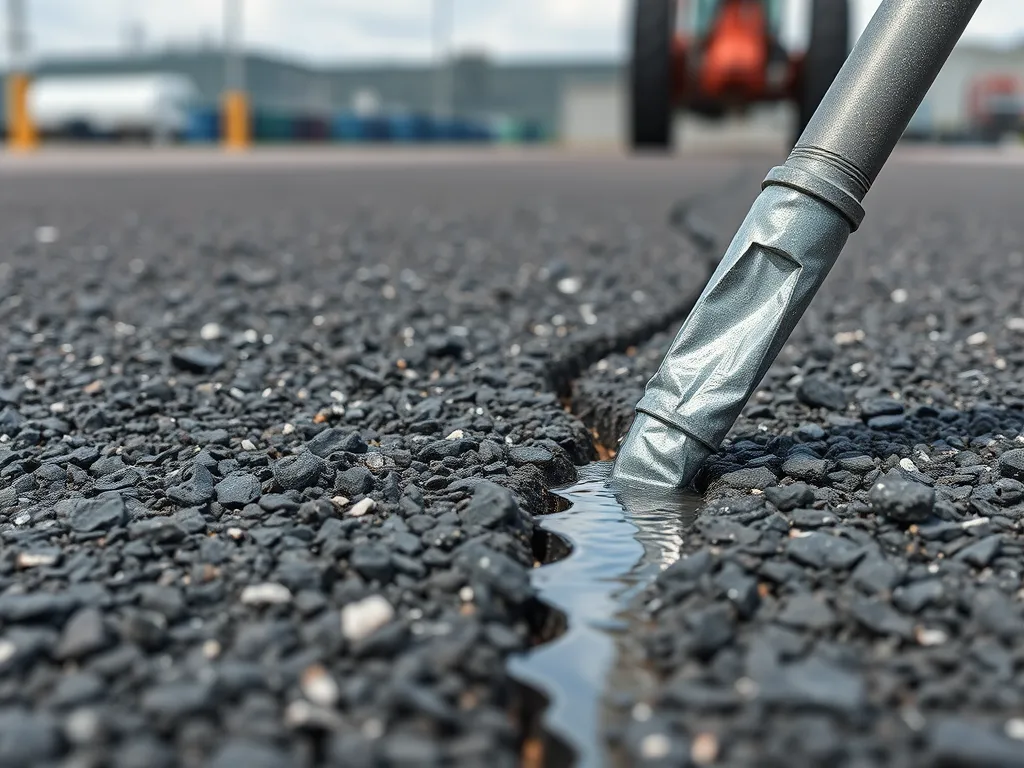
Environmental Considerations
Sustainability Of Sealed Asphalt Millings
Sealed asphalt millings boost green efforts. Millings reuse old roads, slashing the need for new rock, sand, or tar. This reuse keeps 95% of scrap pave from dumps. A tight seal adds 8-12 years to drives or lots, so you fix them less. But some seal coats have coal tar or harsh oils. These can seep into soil or streams. Pick low-VOC (volatile organic compounds) blends to cut air harm and meet EPA rules.
Eco-friendly Sealer Options
Green sealers work well for millings. Soy-based or plant-made coats are top picks. They skip coal tar and use safe, low-VOC (<50 grams per liter) mixes. Water-based acrylics bond fast, dry in 4-6 hours, and won’t taint rain runoff. Brands like Eco-Seal or GreenPave offer these options. For DIY, mix 1 part beet juice with 3 parts water as a base before sealing. This cuts dust and keeps costs low—about $0.15 per square foot.
Ready to pick the right sealer? Let’s break down how each type stacks up in cost, dry time, and eco-impact.
FAQs About Sealing Asphalt Millings
Can You Seal Coat Over Asphalt Millings?
Yes, you can seal coat over asphalt millings. This process enhances durability and visually improves the surface, but it’s essential to ensure proper surface preparation before applying the seal coat.
How Do You Harden Asphalt Millings?
To harden asphalt millings, you should compact them properly using a plate compactor. Additionally, applying a sealant can help bind the particles together and improve strength.
What Do You Spray on Asphalt Millings?
When sealing asphalt millings, you typically spray a specialized asphalt emulsion or coal tar-based sealant designed for recycled asphalt. These are effective in improving durability and appearance.
Does Recycled Asphalt Need to Be Sealed?
While sealing is not strictly necessary for recycled asphalt, it’s highly recommended to enhance its lifespan, improve aesthetics, and prevent erosion. Sealing can provide significant benefits.
What is the Best Sealer for Asphalt Millings?
The best sealers for asphalt millings are asphalt emulsion sealers and coal tar-based sealants. Each has its benefits, so consider the specific needs of your project and consult product labels for best results.
What Bonding Agent is Recommended for Asphalt Millings?
A good bonding agent for asphalt millings is a polymer-modified sealant, which enhances adhesion and provides better resistance to wear and weather elements.
Is Hawk Seal Effective for Sealing Asphalt Millings?
Yes, Hawk Seal is effective and commonly used for sealing asphalt millings. It helps create a smooth, durable surface while adhering well to the millings.
How Can I Create a DIY Asphalt Millings Rejuvenator?
You can create a DIY rejuvenator by mixing diesel fuel or vegetable oil with water, but it’s crucial to use caution with solvents. Another option is combining 1 part beet juice with 3 parts water to enhance the binder properties of millings.
Is It Advisable to Use Diesel on Asphalt Millings?
While some people use diesel to rejuvenate asphalt millings, it’s not broadly recommended due to its potential environmental impact and long-term surface issues. Consider eco-friendly alternatives instead.
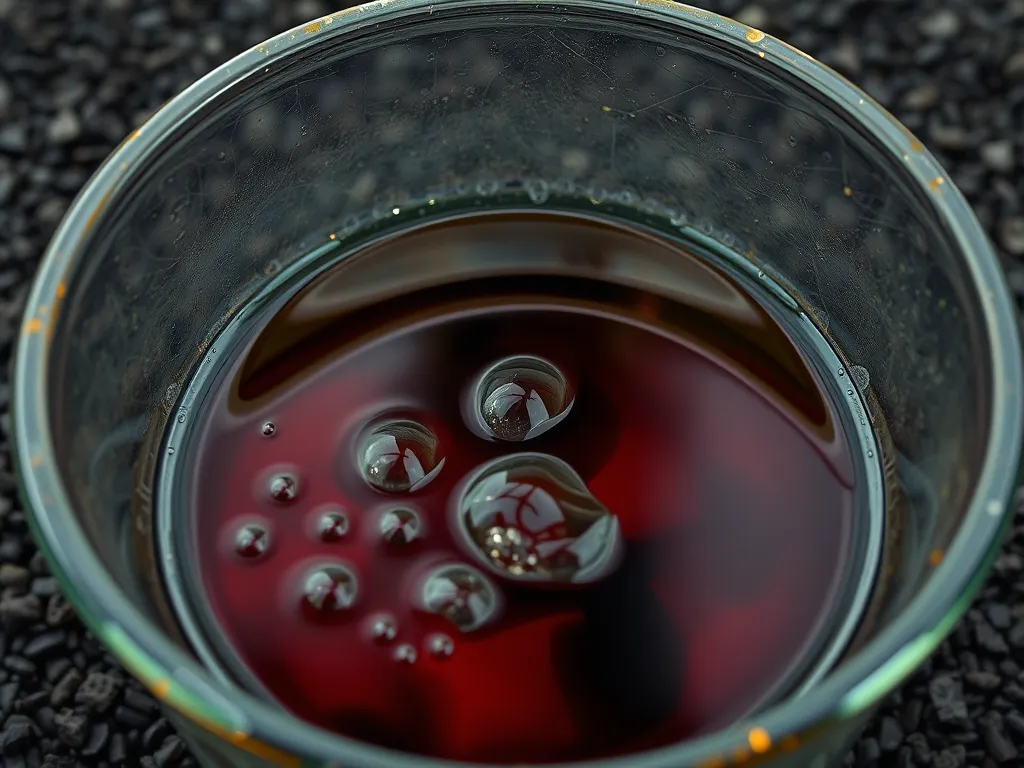
Final Thoughts on Sealing Asphalt Millings
Sealing asphalt millings is a practical choice for enhancing durability and protecting against wear. While sealing offers benefits like increased longevity and improved appearance, it’s important to weigh the potential drawbacks, such as additional costs and maintenance. Proper preparation and application are key to achieving the best results.
Optimal weather conditions and maintenance routines contribute significantly to the lifespan of sealed millings. Consider eco-friendly sealers to support sustainability while still enhancing performance. For those in need of precise calculations, Asphalt Calculator USA provides valuable resources to assist with your asphalt projects.

